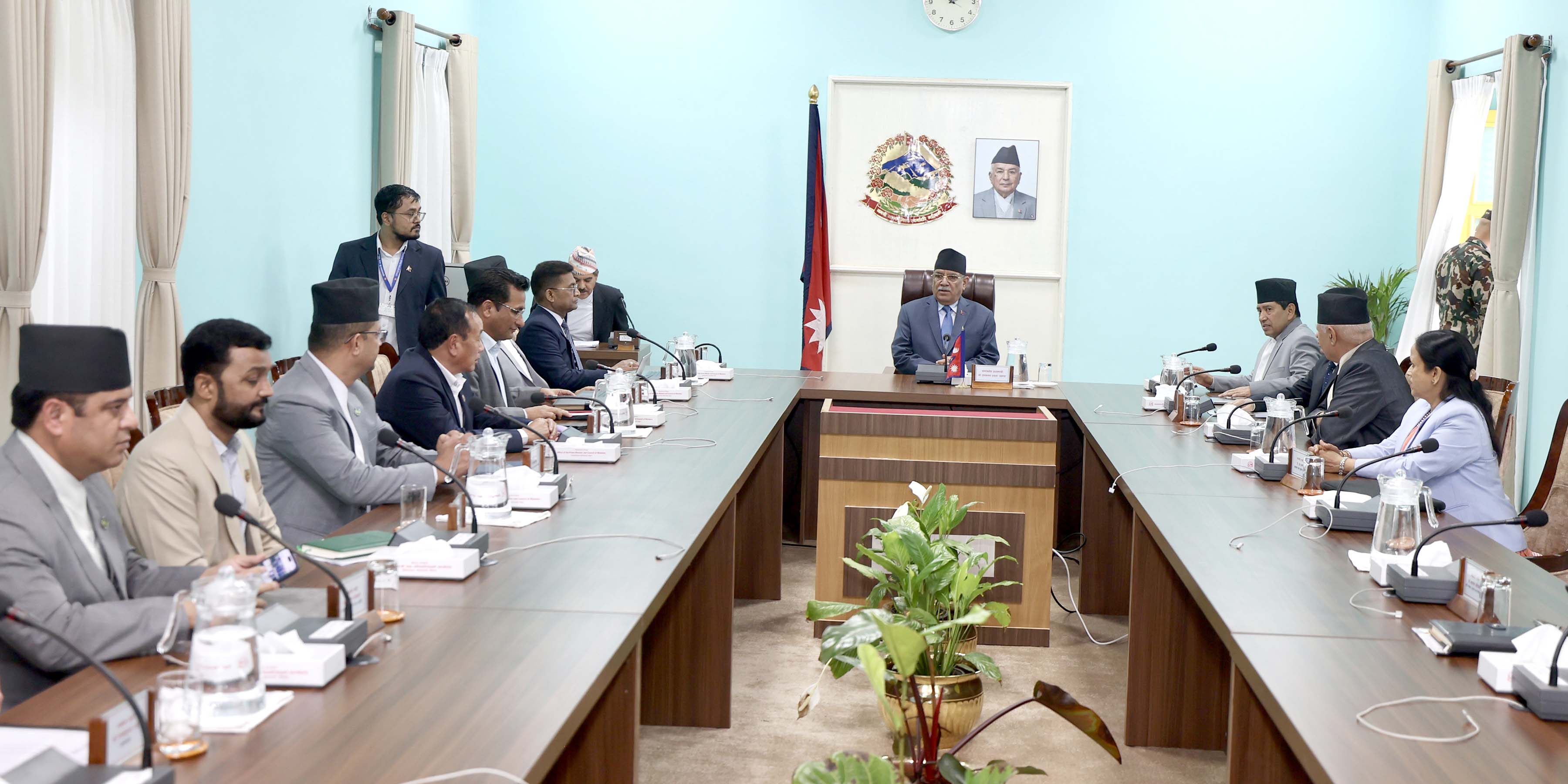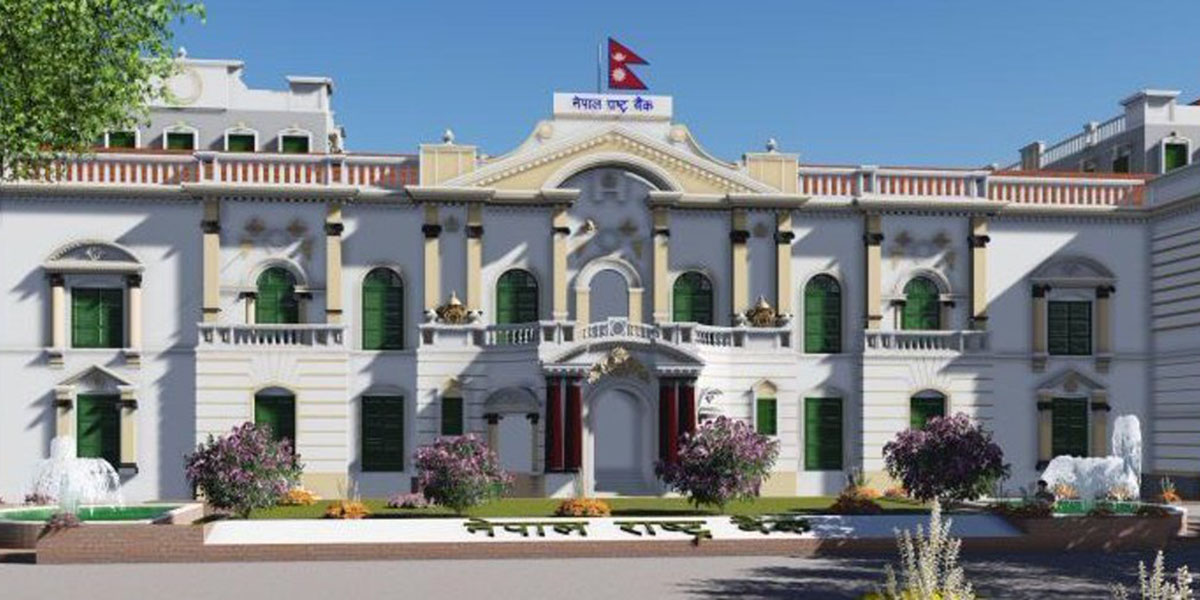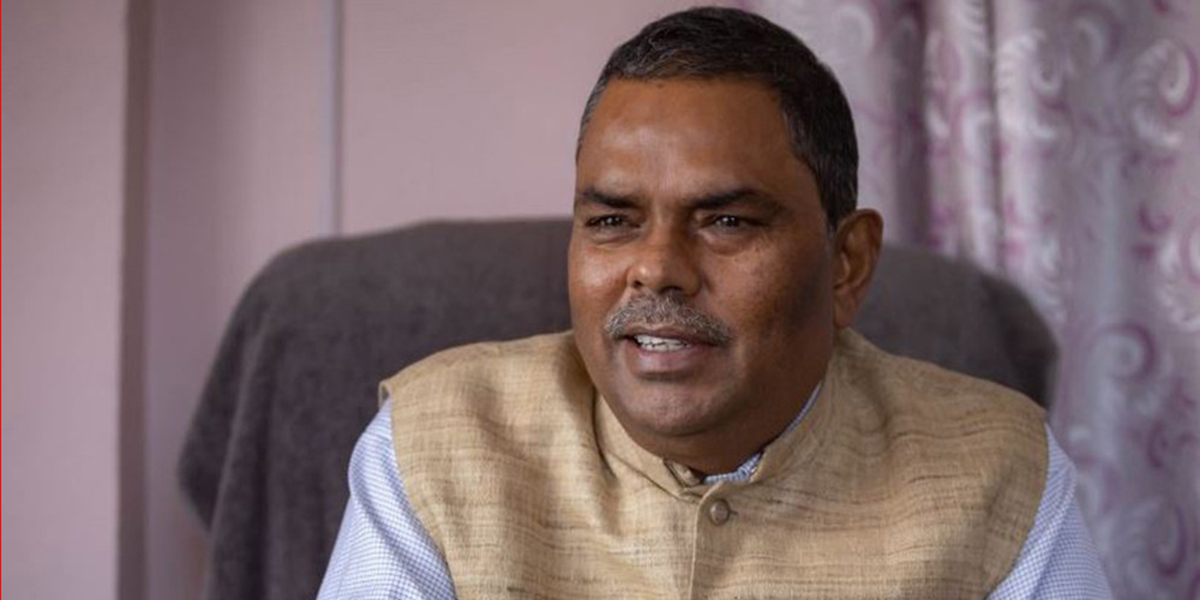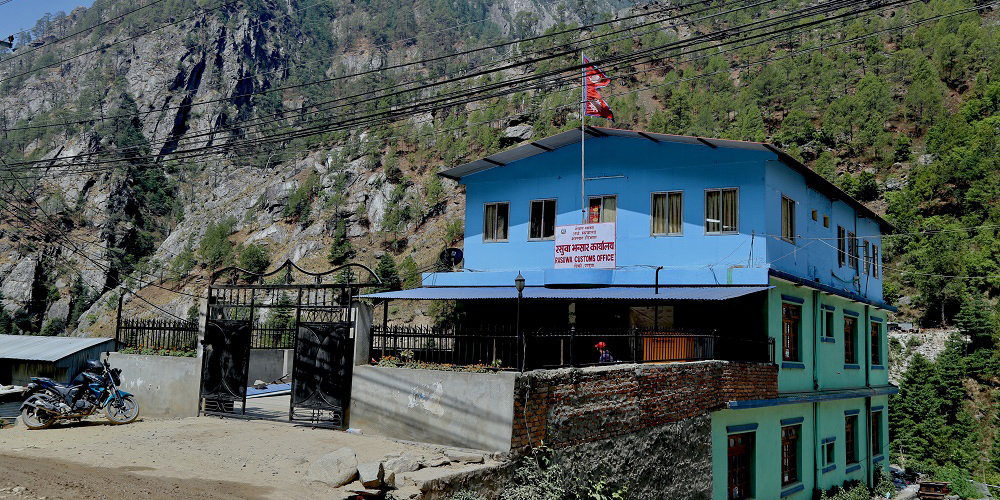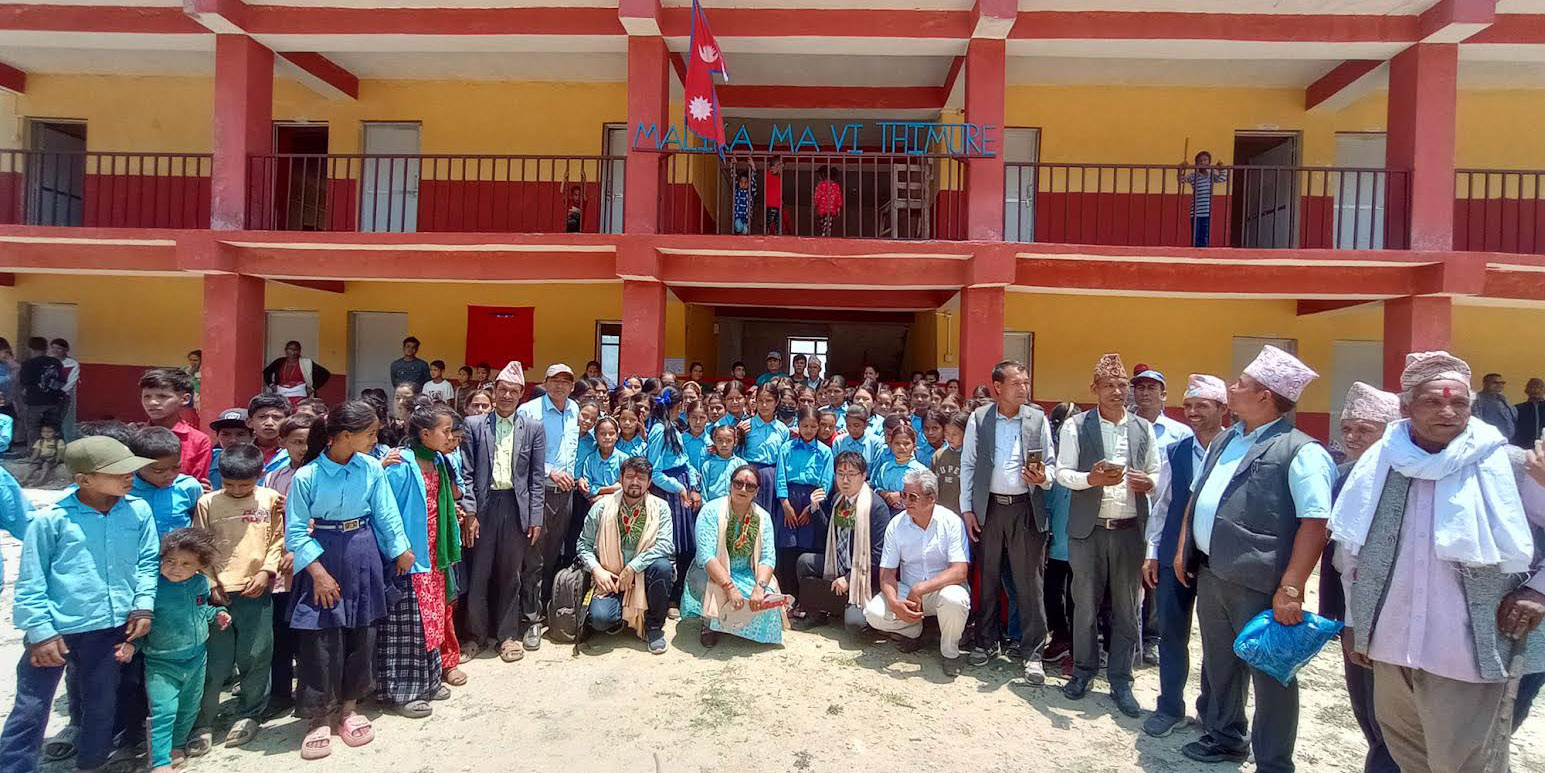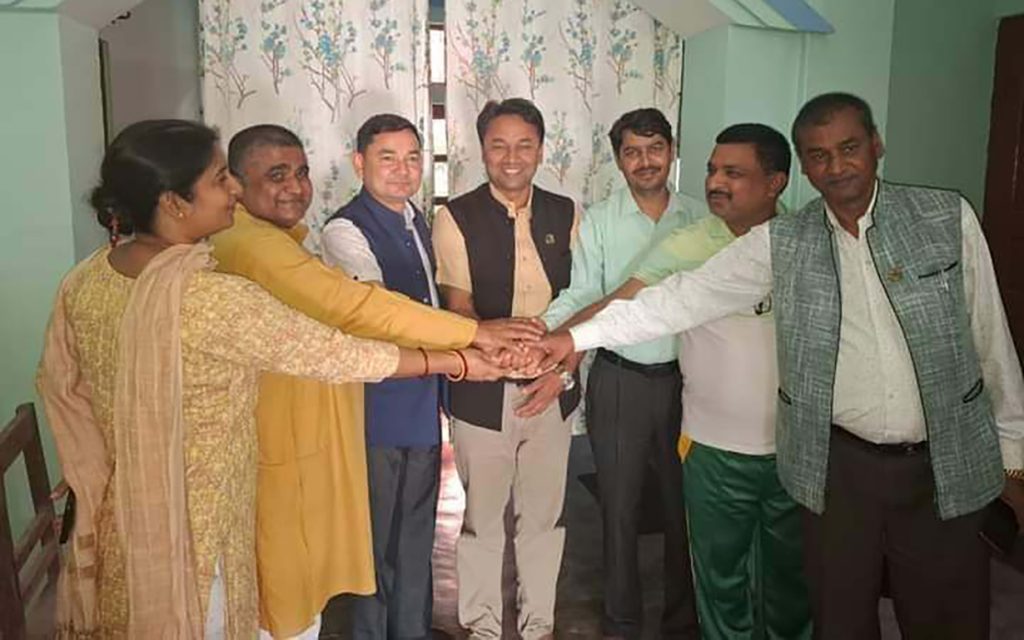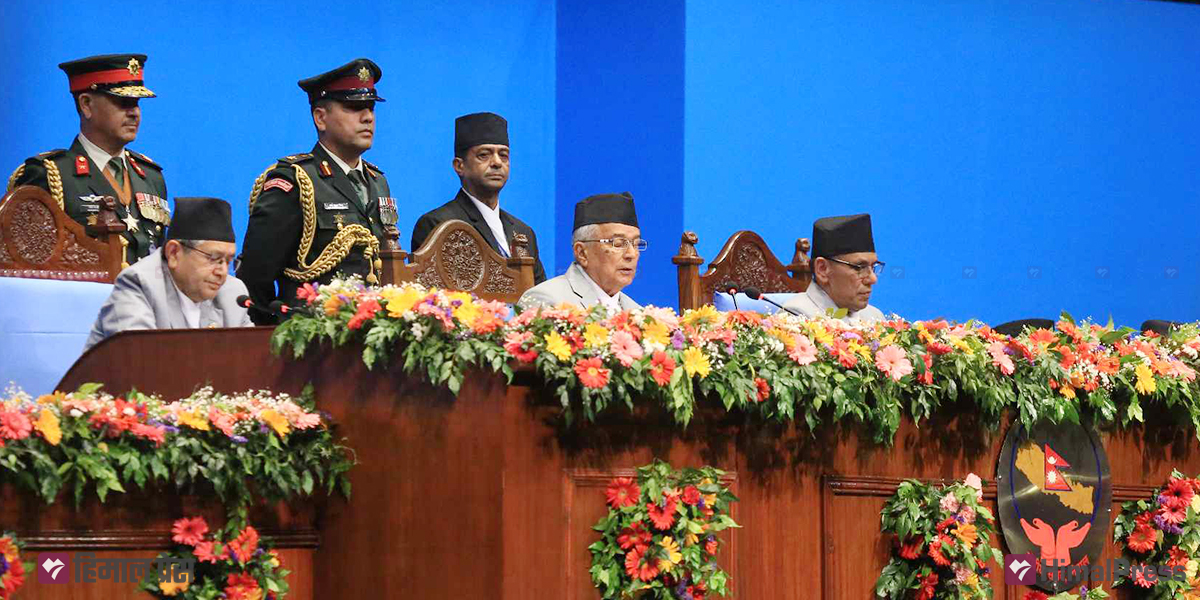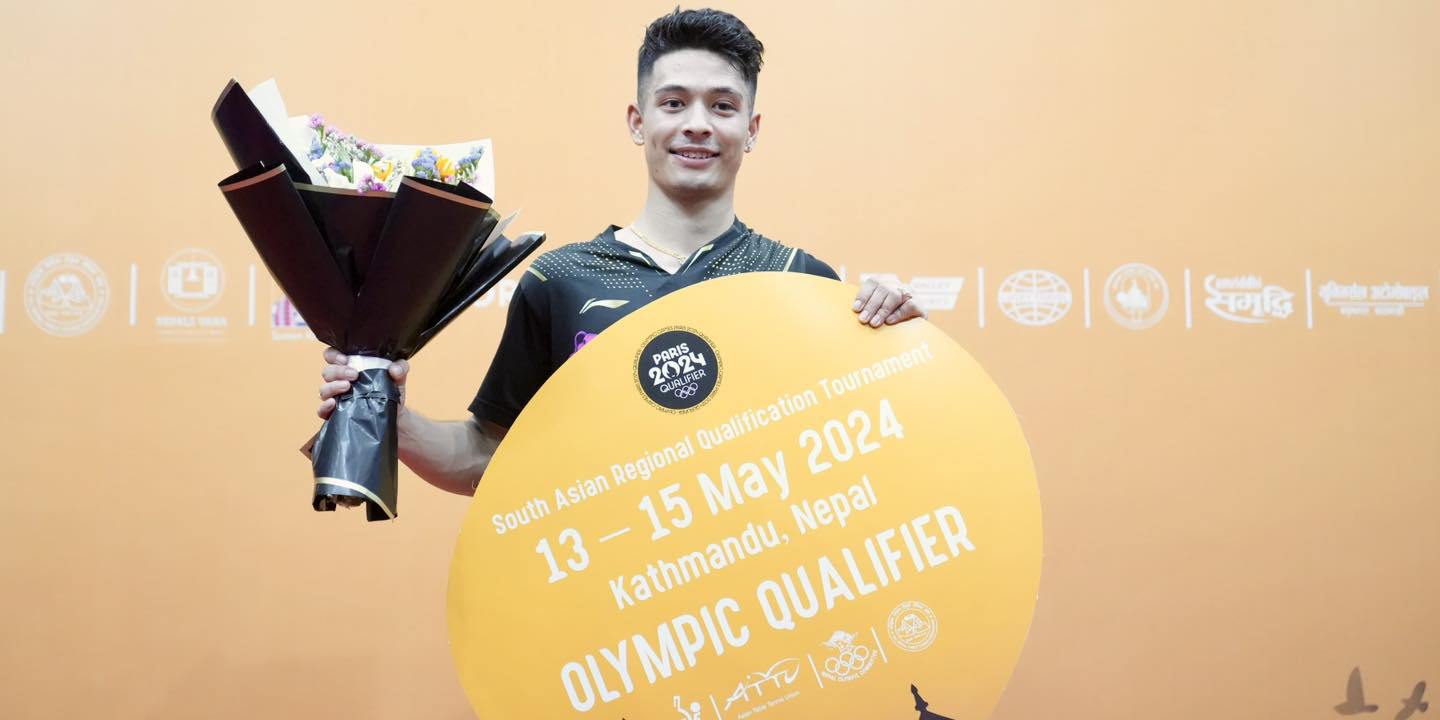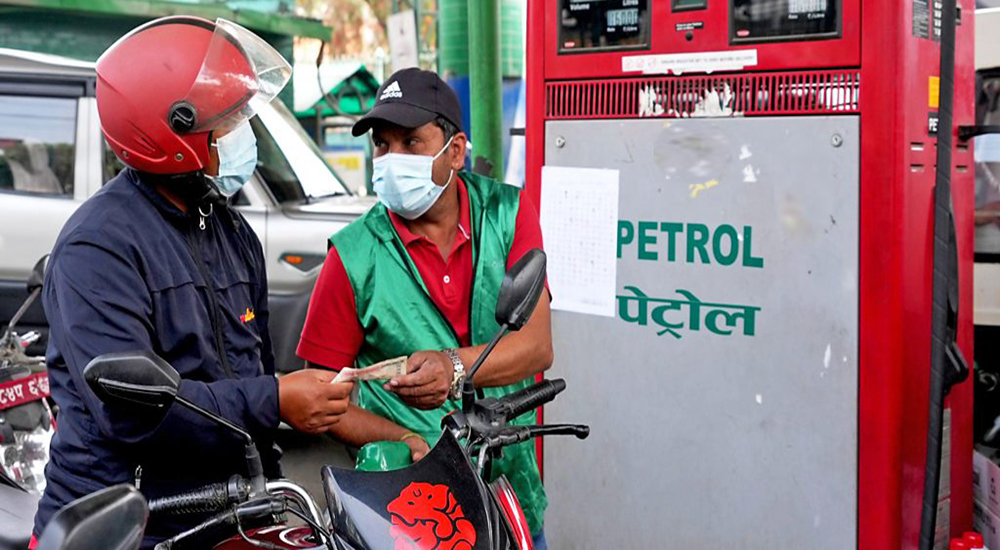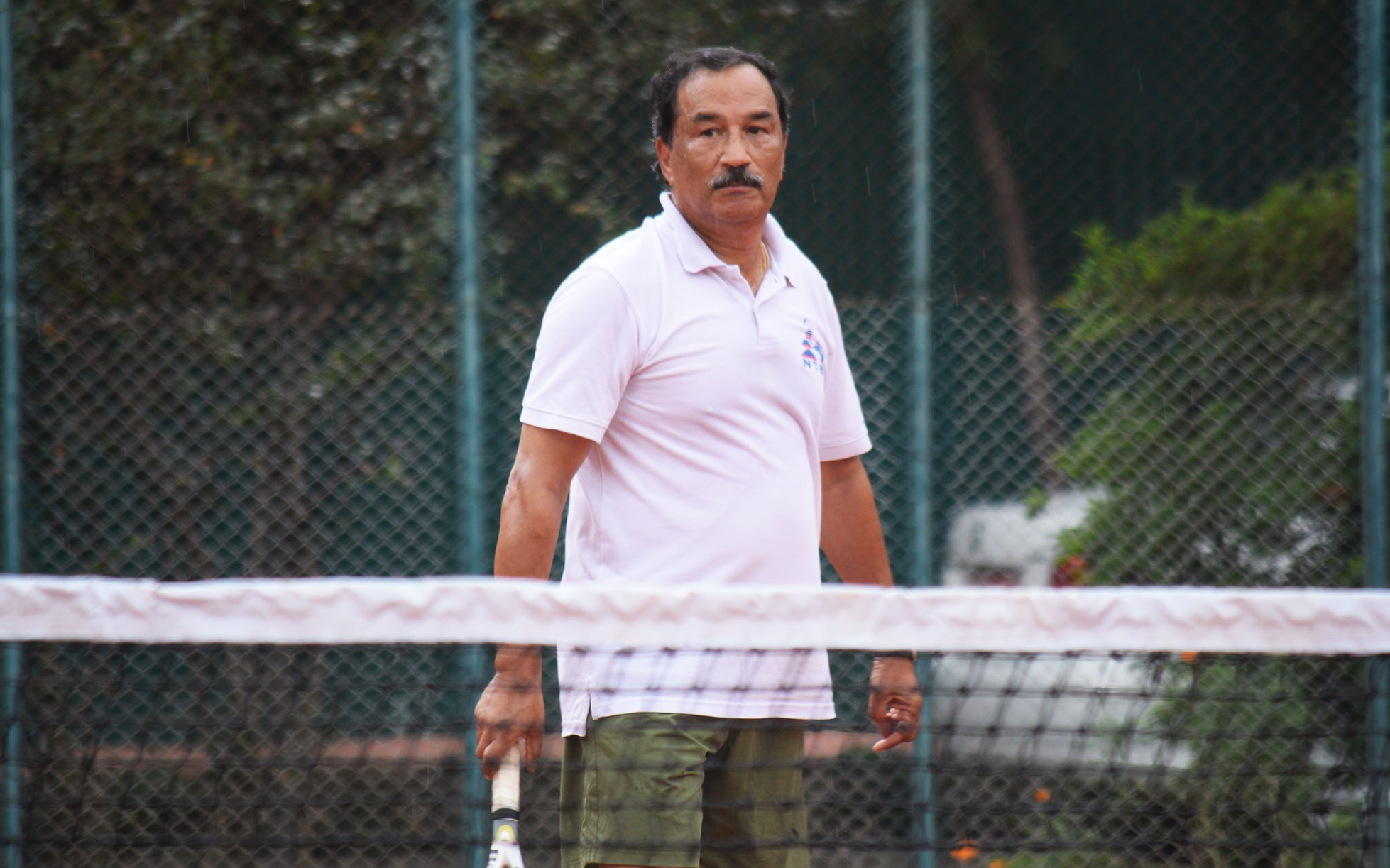 Photo Courtesy: Tennis Nepal's Facebook Page
Photo Courtesy: Tennis Nepal's Facebook Page
KATHMANDU: Rastriya Prajatantra Party-Nepal (RPP-Nepal) Chairman Kamal Thapa contested the November 20 election in the Makwanpur-1 constituency using CPN-UML’s election symbol ‘Sun’. But Thapa was defeated by his former party colleague, Deepak Singh. Despite the support of UML, Thapa received only 25,460 votes and his party received a low 12,340 proportional votes nationwide.
Thapa joined forces with the UML party, believing that he would have a better chance of winning the election under their symbol. Despite this, he still instructed his supporters to run for office under the symbol of his own party. Despite this strategy, he was still unsuccessful in the election.
Thapa’s loyal followers claim that he was caught in a political trap. They state that the reason for this is his refusal to listen to the advice of both New Delhi and the European Union. “We were getting phone calls from New Delhi, asking to speak with Thapa,” a leader said.
A leader close to Thapa stated that there were forces working against him due to his decision not to align with New Delhi’s position.
RPP-Nepal Spokesperson Rajaram Bartaula stated that propaganda was spread against the party leadership in a planned and conspiratorial manner. “Since we had to go to the polls in a short time after revitalizing the party, there were not too many expectations. We could not counter the propaganda about our party and the leadership,” he said, adding: “There was not enough time to organize, to go to the people and put our point, to clear the confusion and to refute the allegations against us.”
Downward Journey
RPP Nepal was once a significant political force in the country. The party had four members in the 2008 Constituent Assembly and 24 members in the 2013 Constituent Assembly. Despite expressing dissents about the constitution that came into force in 2015, the party repeatedly joined governments and Thapa held positions such as deputy prime minister and foreign minister.
Political experts believe that Thapa’s decline in Nepali politics began after the adoption of the new constitution in 2015. The defeat in the party’s general convention held last year was the lowest point. Thapa did not accept the results of the convention, and he accused the palace of interfering in the election and demanded an investigation. However, the newly elected President Rajendra Lingden did not take his allegations seriously.
Thapa, who had always been accustomed to being in a leadership role, was surprised when he lost control of RPP. He had previously vowed not to break the party by joining with RPP, but he did not keep that promise. Thapa claims that he did not break the party but rather resigned from it.
However, within two months of the convention, he announced the formation of a new party with those close to him. He initially planned to name the party “Rastriya Ekta Party” and use the “Pashupatinath Temple” as its election symbol.
At that time, Lakpa Tamang, who was in control of RPP Nepal, handed the party over to Thapa. Tamang issued a statement saying, “When he (Kamal Thapa) joined RPP in the name of party integration, I decided to save RPP Nepal. My thinking that such a situation will come one day and Kamal Thapa will need RPP Nepal again has now been proven.” However, sources say that Tamang was facing difficulties running the party.
When KP Sharma Oli became the Prime Minister for the first time, Thapa’s diplomatic and negotiation skills helped lift the Indian embargo imposed after Nepal adopted the new constitution. While Oli took credit for the removal of the blockade, sources say that it was Thapa who had worked to lift the embargo.
Leaders close to Thapa, who were in the RPP, wanted to join when he revived RPP Nepal. Thapa’s supporters also had a majority in the working committee of RPP. But Thapa ignored them. Instead, he said: “You have been elected to the party organization, stay there. I will form an organization with new friends.” This is why it is natural for Thapa to claim that he did not split the party, according to these leaders.
Now, Thapa is facing difficulty in running the party, similarly to Tamang. RPP Nepal, which was once a brand associated with Kamal Thapa, has now become a burden for him. A young leader close to Thapa said, “The president has ruined his future, he is ruining even those of us who are just beginning to understand politics. We left the RPP to support Thapa. Now, we are heading to nowhere.”
The young leader said that Thapa’s current situation is a result of his own actions. “He still has the same attitude as in the Panchayat era days. The younger generation does not like this,” the leader added.
Thapa is known to be a skilled negotiator and studious leader, who can accomplish a lot when he sets his mind to it. However, in some cases, he has been criticized for ignoring important issues.
Another leader said that even during the convention, Thapa did not seek votes from the central representatives. “During the convention held at Bhrikuti Mandap, Thapa got down from the car in the style of a South Indian movie hero, waved his hand, cast his vote and spent the day sipping coffee at a Darbarmarg hotel,” he alleged.
Thapa is known to be a skilled negotiator and studious leader, who can accomplish a lot when he sets his mind to it. However, in some cases, he has been criticized for ignoring important issues. When he first became foreign minister in 1997, he sent a non-paper stating that the 1950 treaty is not equal. India had categorized Thapa’s letter, sent through the foreign secretary, as a non-paper. He, however, was unable to follow up on the letter.
When he was foreign minister last time, he initiated the formation of the Nepal-India Eminent Persons’ Group (EPG) to revise the 1950 and other unequal treaties and to study the overall bilateral issues between the two countries. Despite this effort, the report including discussions and on-site studies on various aspects of Nepal-India relations, is gathering dust in the cabinet of the foreign affairs ministry.
Existential Crisis
The popularity of the RPP, led by Rajendra Lingden, has soared. In the 2017 election, only Lingden was elected from the RPP. However, in the 2022 election, held less than a year after Lingden took over as party leader, the RPP elected 14 members to the House of Representatives.
The increasing popularity of RPP has presented a challenge for RPP Nepal, led by Kamal Thapa. Some leaders who previously supported Thapa have returned to RPP, while others have joined the UML. Kailash Katwal, the president of a youth organization affiliated with RPP Nepal, recently returned to RPP. In November of last year, leader Sridhar Subedi joined the UML.
Katwal and Subedi were once considered close confidants of Thapa. However, they have parted ways with him due to their lack of confidence in the party’s future prospects. Subedi states that he left the party because RPP Nepal was not able to secure any “positions” in his constituency. He didn’t see the party expanding its presence in his Banke-1 constituency even after 15-20 years of efforts. “It does not make sense to contest for a ward chairman position at the age of 50 or 60,” he added.
Thapa’s leadership is facing a further crisis as more of his confidants are leaving the party. Experts believe that RPP Nepal is facing an existential crisis due to Thapa’s perceived opportunistic character. This characterization of Thapa’s leadership style can be traced back to his actions in 1990.
After the adoption of the 1990 Constitution, Thapa joined the Rashtriya Prajatantra Party, which was formed by leaders of the Panchayat system, and was defeated in the 1991 general election in Makwanpur. However, he won in the 1994 mid-term elections.
After the 1994 elections, Thapa’s ambition for power became apparent. It was a hung parliament and the party that had his support could form the government. He even helped to bring down the government in which he was a minister by voting in favor of a no-confidence motion against his party leader, Lokendra Bahadur Chand.
When Sher Bahadur Deuba became Prime Minister for the first time in 1995 with the support of Thapa’s party, Thapa was given the opportunity to lead the Ministry of Law, Justice, and Parliamentary System and Local Development. However, when the UML brought a no-confidence motion against Deuba, Thapa resigned, anticipating that the motion would be successful. But when it became clear that the motion would fail, he returned to vote in favor of the government. This inconsistency and opportunistic behavior has led some people to describe him as a “politically characterless” figure.
King’s Direct Rule
Thapa served in the cabinets of both Lokendra Bahadur Chand and Suyra Bahadur Chand after former King Gyanendra Shah assumed power in 2002. When former King Shah became the chairperson of the council of ministers, Thapa became an even more powerful home minister. During the second mass movement of 2005, Thapa played a controversial role as a “villain” in suppressing the protest movement.
An inquiry committee was established to investigate the suppression of the peaceful movement after Shah’s direct rule ended. The committee recommended action against Thapa, but no investigation was conducted against him.
Thapa, who was once known for promoting the agenda of monarchy and Hindu nationalism, has now turned against the former king himself. He has dropped the monarchy agenda, but still advocates for making Nepal a Hindu nation. However, many people are skeptical of his supposed “change of course” and do not believe in his new stance.
Way Forward
After his party’s poor performance in the November 20th election, Thapa is concerned about the future of his party and it is speculated that he may merge RPP Nepal with other parties. However, the RPP Nepal Spokesperson, Bartaula, denies any immediate plans for a merger, but states that they are open to such proposals. Bartaula said, “We think there is always a situation where ideas, policies, programs, and feelings can be reconciled” and added “there is no such thing as waiting in the name of reconciliation. If there is such a possibility somewhere during the journey, RPP Nepal will move forward by joining hands with all.”
According to Bartaula, RPP Nepal will move forward in a new direction by joining hands with nationalist democratic forces. He stated “We will now focus on the campaign to strengthen the party, we will focus on the people. We will go among the people with nationalism, democracy and Hinduism as the highest priority.”
Bartaula stated that the party will proceed forward with a high morale after reviewing all the issues. He said “Even now, we are firm that the values, recognition, and roadmap carried by RPP Nepal are beneficial in the national politics,” and added “The defeat has caused some shock and disappointment. We will now move RPP Nepal forward with a new energy, in a new vein.”



